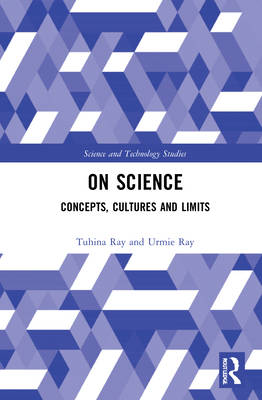
- Retrait gratuit dans votre magasin Club
- 7.000.000 titres dans notre catalogue
- Payer en toute sécurité
- Toujours un magasin près de chez vous
- Retrait gratuit dans votre magasin Club
- 7.000.0000 titres dans notre catalogue
- Payer en toute sécurité
- Toujours un magasin près de chez vous
Description
On Science: Concepts, Cultures, and Limits explores science and its relationship with religion, philosophy, ethics, mathematics, and with socio-economic changes.
The book gives an overview of the metaphysical contexts in which science emerged and the particular forms science has taken in history. It examines the preoccupation of ancient cultures with the validity of interpretations of natural phenomena, the role of the study of materials in the substantiation of the conceptual world, and the establishment of modern science on both experimentation and mathematics. This theoretical discussion is illustrated by a host of examples from physics to the life sciences, which highlight how current concepts developed over the centuries, or even millennia.
The volume underscores some of the weaknesses inherent in a scientific approach, and how in the modern context of a wealth-driven technological orientation, these have been conducive to a gradual distortion of science into its exact opposite, a dogmatic faith. It further discusses the nature of scientific education in the world, and how conditions can be created to ensure pioneering creativity and to preserve scientific rigor.
The book will be of great interest to scholars, teachers and researchers of science, the metaphysics and philosophy of science, mathematics, science and technology studies, epistemology, ethics, history and sociology. It will also be useful for general readers who are interested in the history of scientific discoveries and ideas as well as in the issues surrounding science today, in particular its relations with many urgent problems.
Spécifications
Parties prenantes
- Auteur(s) :
- Editeur:
Contenu
- Nombre de pages :
- 256
- Langue:
- Anglais
- Collection :
Caractéristiques
- EAN:
- 9780367442552
- Date de parution :
- 21-12-20
- Format:
- Livre relié
- Format numérique:
- Genaaid
- Dimensions :
- 155 mm x 239 mm
- Poids :
- 476 g

Les avis
Nous publions uniquement les avis qui respectent les conditions requises. Consultez nos conditions pour les avis.






